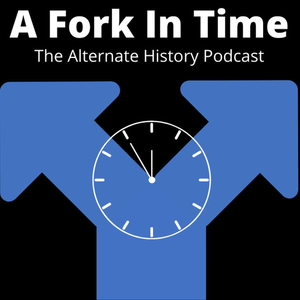
Abolition, Now part 2
11/14/23 • 25 min
In the last episode, ‘Abolition, Now part 1’, I was talking with Historian Diana Patton about the real timeline of Aboliton and what Abolition really meant for those previously enslaved. Towards the end of the episode we began speaking about Apprenticeships and how those previously enslaved were then forced to work for the people who formerly owned them. Should they not want to work, the punishments were fast and brutal.
Learn more about your ad choices. Visit podcastchoices.com/adchoices
In the last episode, ‘Abolition, Now part 1’, I was talking with Historian Diana Patton about the real timeline of Aboliton and what Abolition really meant for those previously enslaved. Towards the end of the episode we began speaking about Apprenticeships and how those previously enslaved were then forced to work for the people who formerly owned them. Should they not want to work, the punishments were fast and brutal.
Learn more about your ad choices. Visit podcastchoices.com/adchoices
Previous Episode

Abolition, Now part 1
Most people know the basics of this moment. Josiah Wedgewood made some pottery, William Wilberforce made some speeches, John Newton wrote Amazing Grace, and boom! Britain’s narrative arc of national moral redemption was complete and slavery was abolished. Or at least – that’s what we’re told.
Featuring Historian of the Caribbean, Diana Paton.
Learn more about your ad choices. Visit podcastchoices.com/adchoices
Next Episode

Think of the Children
At the height of the British slave trade, there were no cameras to capture the experiences of the children who found themselves forced into enslavement. There are not even exact numbers for how many youths were sucked into the system - estimates suggest a quarter of the roughly 12 million Black Africans enslaved between the 16th and 19th centuries would be categorised as children. Their stories are some of the hardest to dig up - but people are persisting anyway.
Featuring Christine Whyte, lecturer in global history at the University of Glasgow.
Learn more about your ad choices. Visit podcastchoices.com/adchoices
If you like this episode you’ll love
Episode Comments
Generate a badge
Get a badge for your website that links back to this episode
<a href="https://goodpods.com/podcasts/human-resources-176411/abolition-now-part-2-36768848"> <img src="https://storage.googleapis.com/goodpods-images-bucket/badges/generic-badge-1.svg" alt="listen to abolition, now part 2 on goodpods" style="width: 225px" /> </a>
Copy




